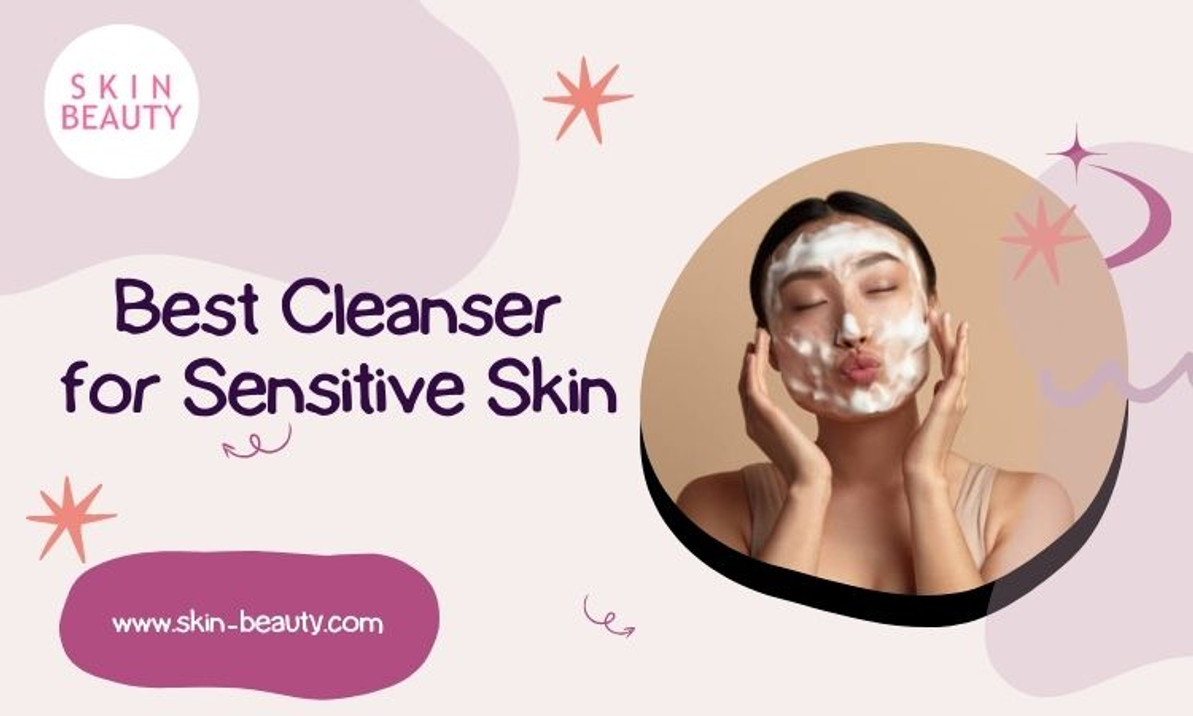Skin Cycling Routine
Revitalize Your Skincare: Master the Skin Cycling Routine for Glowing Results
Are you ready to rejuvenate your skincare routine and achieve a glowing complexion like never before? Meet the skin cycling routine, an innovative approach to skincare that alternates between active ingredients and rest days to optimize your skin’s health while minimizing irritation. In this blog post, you’ll discover the ins and outs of the skin cycling routine and learn how to customize your own routine for radiant results.
Key Takeaways
- Skin cycling is an effective skincare routine that helps maximize skin health and reduce irritation.
- Enjoy the benefits of glowing, smoother skin with exfoliating acids, retinoids/retinol, hydration & recovery tailored to your individual needs.
- With expert advice and daily SPF protection follow a step-by-step guide for successful skin cycling results!
Understanding Skin Cycling

Consider a skincare routine that lets your skin rest, heal, and rejuvenate while still offering the advantages of your beloved products. That’s precisely what skin cycling is all about! This popular beauty trend revolves around alternating or intermittently using active ingredients like exfoliating acids and retinoids to maximize skin health and reduce potential irritation.
The typical specific skin cycling routine is a four-day regimen. Typically, you’ll use active ingredients for two nights of the week, followed by two nights of rest, and then repeat the process. This approach has gained popularity as people become more aware of the importance of giving their skin a break and avoiding product overload.
Are you prepared to initiate skin cycling and witness its advantages firsthand?
Advantages of Skin Cycling

Numerous reasons contribute to why skin cycling is rapidly becoming a preferred method among skincare enthusiasts. Primarily, it can aid in:
- Repairing the skin barrier, vital for shielding against infections, harsh chemicals, and allergens
- Reducing adverse product side effects
- Protecting skin against seasonal problems
Skin cycling, a part of an effective skin care routine, can help improve a variety of skin conditions, such as:
- Acne
- Uneven skin tone
- Dryness
- Signs of aging
By incorporating skincare products, exfoliants, retinoids, and moisturizers, skin cycling can maximize the effectiveness of active ingredients and reduce skin irritation. It provides the skin with the opportunity to heal between treatments and prevents inflammation and damage caused by frequent exfoliant and retinoid use.
Essential Components of a Skin Cycling Routine

To achieve glowing skin through skin cycling, you’ll need to incorporate three essential components: exfoliating acids, retinoids, and hydration and recovery. By including these elements in your skincare routine, you’ll create an effective skin cycling regimen that brings out the best in your complexion.
Exfoliating Acids

Exfoliating acids, such as alpha hydroxy acids (AHAs) and beta hydroxy acids (BHAs), are chemical exfoliants that help reveal brighter, smoother skin and give you a glowing complexion. They are particularly beneficial for acne-prone skin, as they help unclog pores and reduce breakouts. Some popular exfoliating acids include glycolic acid, salicylic acid, and lactic acid, each with unique properties that cater to different skin types and concerns.
In a skin cycling regimen, exfoliating acids have a pivotal role in improving product absorption and skin glow. By incorporating them into your routine, you’ll enable your skin to better absorb the active ingredients from retinoids and hydrating products, leading to improved skin texture and tone.
Retinoids and Retinol
Retinoids and retinol, both vitamin A derivatives, are powerful anti-aging products that can help reduce fine lines and wrinkles when used properly. They can improve the appearance of wrinkles, fine lines, and dark spots, making them an essential component of any skin cycling routine.
Yet, be aware that retinoids and retinol can trigger skin irritation if not appropriately used. Initiating with a product that contains a low concentration of the active ingredient and gradually escalating the dosage as your skin adapts is vital. This will help minimize the risk of irritation and ensure that your skin can reap the benefits of these powerful ingredients.
Hydration and Recovery

Recovery nights in skin cycling focus on nourishing and fortifying the skin barrier. During these nights, you’ll focus on using hydrating ingredients like hyaluronic acid to replenish your skin’s moisture levels and soothe any irritation caused by exfoliating acids and retinoids.
A well-formulated recovery routine should include a nourishing serum and a hydrating moisturizer to ensure that your skin remains healthy and glowing throughout the skin cycling process. By incorporating hydration and recovery into your skin cycling routine, you’ll provide your skin with the necessary tools to heal and recover, resulting in a radiant complexion.
Customizing Your Skin Cycling Routine

Although skin cycling can benefit everyone, tailoring the routine to your specific skin type and concerns is essential. In the following subsections, we’ll discuss how to tailor your skin cycling routine for sensitive skin, as well as finding the right balance for dry and oily skin types.
Sensitive Skin

If your skin is sensitive, adopting a gentler approach when integrating skin cycling into your routine may be necessary. One helpful method is the “sandwich technique” for retinoids, which involves applying moisturizer before and after your retinoid product to reduce irritation.
For sensitive skin, opting for gentle, fragrance-free skincare products, specifically formulated for your skin type is also important. This may include products with natural ingredients, mild exfoliants, and low concentrations of active ingredients like retinol. By carefully selecting your skincare products, you can enjoy the benefits of skin cycling without causing unnecessary irritation or discomfort.
Dry and Oily Skin

Achieving the right equilibrium in your skin cycling regimen is vital for both dry and oily skin types. For dry skin, focus on hydrating and nourishing products to keep your skin moisturized and healthy. This may include using a hydrating cleanser, moisturizing serum, and nourishing moisturizer in your routine.
On the other hand, oily skin can benefit from a more balanced approach, incorporating hydration to prevent excessive oil production while using lighter moisturizers or serums. By tailoring your skin cycling routine to your specific skin type, you’ll ensure that your skin stays healthy and balanced throughout the process.
Expert Tips for Skin Cycling Success

For optimum skin cycling success, consult a dermatologist who can offer personalized advice and guidance tailored to your skin type and concerns. They can help you select the most effective products and ingredients for your routine and monitor your skin’s response to ensure the best possible results.
Also, integrating daily SPF into your skincare routine is fundamental for safeguarding your skin from damaging UV rays, particularly when using active ingredients like retinoids or exfoliating acids. By following expert advice and staying consistent with your skin cycling routine, you’ll be well on your way to achieving a radiant and healthy complexion.
Addressing Common Concerns
On initiating a skin cycling regimen, having concerns about possible side effects and the significance of consistency and frequency is natural. By understanding the potential benefits and risks associated with skin cycling, you can make informed decisions about your skincare routine and achieve optimal results.
Maintaining consistency and adhering to a regular skin cycling routine to maximize its benefits is imperative. As your skin adjusts to the new routine, you may experience some irritation or sensitivity, but these side effects should diminish over time. By addressing common concerns and following expert advice, you can enjoy the potential benefits of skin cycling with confidence.
Skin Cycling Routine: A Step-by-Step Guide

Ready to commence your skin cycling journey? Follow this step-by-step guide to create a customized skin cycling routine that incorporates exfoliation, retinoids, and hydration for glowing results:
- Exfoliation Night: Begin your four-night cycle with an exfoliating acid, such as glycolic acid, salicylic acid, or lactic acid, to remove dead skin cells and reveal a brighter complexion.
- Retinoid Night: On the second night, apply a retinoid product to improve skin texture and reduce the appearance of fine lines and wrinkles.
- Recovery Nights: On nights three and four, focus on hydration and recovery by using nourishing serums and hydrating moisturizers to replenish your skin’s moisture levels and soothe any irritation caused by exfoliating acids and retinoids.
Following this straightforward but effective skin care routine, you’re on the path to attaining a radiant and healthy complexion through the power of skin cycling.
Summary
In conclusion, skin cycling is a game-changing approach to skincare that can help you achieve a radiant and healthy complexion by alternating the use of active ingredients and rest days. By understanding the essential components of a skin cycling routine, customizing it to suit your specific skin type and concerns, and following expert advice, you can enjoy the numerous benefits of this innovative skincare method.
So, why not take the plunge and revitalize your skincare routine with skin cycling? It’s time to embrace this transformative beauty trend and unlock your skin’s full potential for a truly glowing complexion.
Frequently Asked Questions
Do you only do skin cycling at night?
Yes, skin cycling is generally recommended to be done at night when the active ingredients can work their magic overnight.
Is skin cycling good for beginners?
Skin cycling is a great place to start for both beginners and those who tend to overcomplicate their routine. It allows you to streamline your skin care, address concerns, and keep your skin in its best health.
What is a morning routine while skin cycling?
A successful morning skin cycling routine involves using a gentle cleanser, vitamin C serum, moisturizer and sunscreen. Depending on skin type, choose a serum containing magnesium ascorbyl phosphate for dry or sensitive skin and l-ascorbic acid for normal or oily skin.
How do you keep track of your skin cycling?
To keep track of your skin cycling, simply follow a four-day evening routine with one type of product for each night. Start with exfoliation on the first night, followed by retinol and two recovery nights with hydrating and barrier repair serums. This method helps to maximize the effectiveness of active ingredients while minimizing irritation.
What is skin cycling?
Skin cycling is an effective skincare method that alternates active ingredients with rest days, ensuring optimal skin health and minimum irritation.
Recent Posts
-
Best Face Wash for Sensitive Skin
My Journey to Finding the Best Face Wash for Sensitive Skin If you’re reading this, you probab …Apr 22nd 2025 -
Best Under-Eye Bags Cream and Treatment
Best Under-Eye Bags Cream and Treatment Do you have the dreaded under-eye bags that make you look l …Apr 14th 2025 -
Rice Water for Skin Benefits
Rice Water for Skin Benefits Rice water for skin has become a viral beauty trend that is supposed t …Apr 4th 2025




